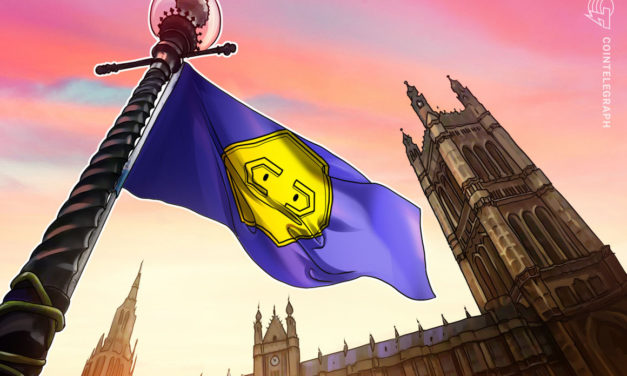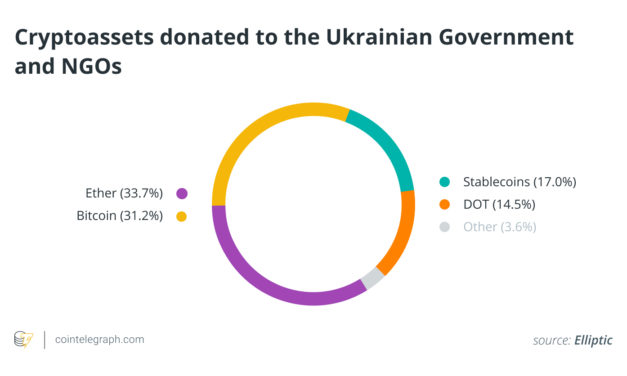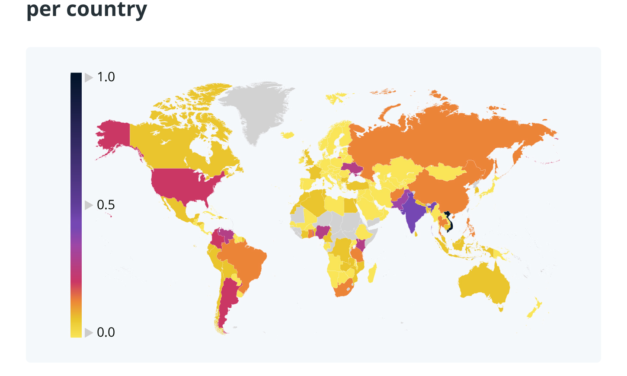United Kingdom banks hate crypto, and that's bad news for everyone
In 2018, the United Kingdom’s Financial Conduct Authority (FCA) wrote to the heads of the country’s biggest high street banks to emphasize the importance of due diligence when dealing with crypto businesses. That seems to have led to widespread high-risk ratings and bans on crypto-related banking, impacting both crypto businesses hoping to operate in the U.K. and investors alike.Banks are, understandably and responsibly, concerned with scams, but the current situation creates uncertainty. Crypto investors need to be able to move their money around as they like, and crypto businesses need access to payment rails for a variety of other reasons, such as paying staff and suppliers.A catch-22 that harms market competitionBy barring crypto businesses from accessing “mainstream” banking, organizations are forced to use payment service providers (PSPs), which are rated higher risk by banks because they’re also used by the gambling industry. There’s a lack of nuance in this process, with banks tending to blanket block transactions through PSPs.Related: Federal regulators are preparing to pass judgment on EthereumWhen it comes to specific services such as payment handling, refusing to service crypto also harms market competition. There’s a sense that banks are reluctant to derisk crypto and make crypto-to-bank payments easier because they feel it cannibalizes their own market. If that’s true, then the regulator needs to step in to maintain market competition.Restricting individuals’ freedomsBanks’ economic risk-reward calculations mean they continue to dip their toes in offering banking services to crypto-asset service providers, but those relationships are fraught. Take, for instance, Barclays providing faster payment services to Coinbase, which ended abruptly after three months. It’s likely that the risk was deemed too great in return for the reward of the amount of funds.Increasingly, banks are blocking crypto payments entirely or triggering their fraud prevention processes wherein customers are called to verify that transactions are made with an understanding of the “risks.” That’s an infringement on ordinary people’s freedom to do what they like with their finances, and the risk weighting given to crypto-related transactions simply isn’t justified.Banks are contradicting themselvesAlthough crypto businesses struggle to open bank accounts and investors have their freedoms curtailed, there is significant interest in crypto from nearly every high street bank. But that’s just on one side of the bank. They’re looking at whether crypto will work from an institutional investment standpoint, but that willingness and knowledge don’t make it across the building to the people doing transactional banking — retail and corporate. You can’t have your cake and eat it, too: Crypto adoption as a form of institutional investment will be hampered by the same issues. Banks are showing a short-sightedness that fails to translate interest in one area into meaningful processes across others, harming every aspect.BCB, Revolut, Clear Junction and ClearBank all offer banking relationships or U.K. bank accounts for those involved in crypto. The fact that a limited number of PSPs are able to work with crypto businesses or investors without significant sanctions from regulators, a greater risk exposure than other organizations and with comparable compliance teams to major retail banks shows that it is possible. Banks are failing to see the size of this opportunity — an opportunity already mined by a few organizations successfully — to create a more competitive landscape.Related: CFTC action shows why crypto developers should get ready to leave the USOrganizations that have minority dealings in crypto are also being unfairly punished by banks’ perceptions of crypto. This is where crypto represents a small proportion of their business, which would otherwise likely be risk approved by the retail banks, but they are being forced to find new ways to access banking and payments services, alongside crypto natives. By misunderstanding the diversity of the cryptosphere, accounting and legal firms with involvement in crypto, no matter how small, are subject to the same blanket bans as wallets and exchanges.Risk rating transparency will help, as will government interventionWe need intervention from the government, and we need it now. Adoption is growing, and crypto isn’t going anywhere. And even more than that, Member of Parliament John Glen, the then-economic secretary, suggested in April that there was an ambition for the U.K. to “lead the way” on crypto and blockchain. The current state of play between U.K. banks, crypto companies and crypto investors flies in the face of that ambition and is the single biggest challenge to flourishing in this new economy.In addition to emphasizing the importance of due diligence, the 2018 FCA letter to banks also says that they have a responsibility to upskill their staff with knowledge and expertise to be able to make risk assessments of crypto business. That hasn’t happened. On the payments side, there’s been little evidence of upskilling or any attempts to understand crypto and, therefore, more accurately assess risk. Instead, they’ve gone for a blanket ban along the lines of the gambling industry based on Standard Industrial Classification codes.The FCA has stepped in and offered licenses to crypto organizations, provided they can demonstrate Anti-Money Laundering and Know Your Customer processes to be able to operate and transact in the U.K. — so there need to be effective banking relationships to enable that.The crypto industry is here to stay and keen to grow, in line with government ambition. But the single biggest challenge to that growth comes from banks refusing to service either crypto businesses or investors. Without urgent intervention to expose decision-making and force support for banking relationships, U.K. crypto participants are forced to either use limited banking services through PSPs or rethink being based in the United Kingdom. That’s bad news for everyone.Ian Taylor is the executive director of CryptoUK, an independent industry body for the United Kingdom’s digital assets industry.This article is for general information purposes and is not intended to be and should not be taken as legal or investment advice. The views, thoughts and opinions expressed here are the author’s alone and do not necessarily reflect or represent the views and opinions of Cointelegraph.
Čítaj viac




